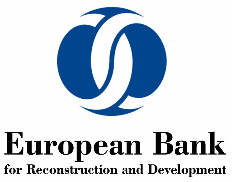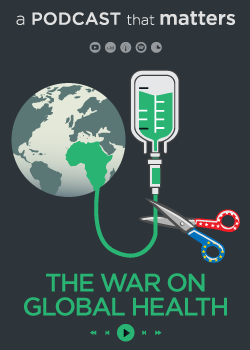Print

Tajikistan: Vahdat Solid Waste Project - Feasibility Study
Details
Locations:Tajikistan
Start Date:2017
End Date:Unknown
Contract value: EUR 189,960
Sectors: Pollution & Waste Management (incl. treatment)
Categories:Consulting services
Funding Agencies:
Date posted:Sep 17, 2019
Description
Project ID: 67931
Title: Tajikistan: Vahdat Solid Waste Project – Feasibility Study
Contract description: The Project objectives are the following:
•Renovate the existing landfill to reduce its environmental impact and augment its sanitary/operating standards or construction of a new sanitary landfill if closure of old landfill required as per performed analysis.
•Assess the municipal waste-to-energy (WtE) potential and in particular the feasibility of a landfill gas recovery system; if proven feasible and economically viable, the landfill renovation will include the necessary infrastructure in preparation for a second investment programme to utilise landfill gas for energy production.
•Procure the equipment (waste collection bins, trucks etc.) needed to improve the operating efficiency and technical capacity of the landfill as well as the waste collection/transportation services.
•Introduce institutional and strategic changes in waste management aimed to boost commercialisation and achieve full cost recovery.
•Provide funding for proper clean-up and closure of the old landfill located inside the residential area of the City.
The expected outcome of the Assignment is to review the detailed requirements, verify whether a bankable project meeting the objectives below can be prepared, and prepare such a project to achieve these objectives. This Project will be based on an effective least-cost investment programme. The investment plan will be justified on the basis of thorough technical, legislative, financial and economic analysis. Furthermore, the Consultant will develop an efficient Project Implementation Plan, including procurement schedule, and carry out an assessment of the resource efficiency opportunities (including energy efficiency and renewable energy potential and the impact on GHG emissions) and environmental , social and gender impacts of the investment programme.
Specific tasks of the assignment will include:
•Review the needs of the Client and/or Beneficiary, including definition and establishment of the area to be covered by the investment.
•Review the specific needs for solid waste management in the area.
•Review the applicable legislation at local and national level in place regarding waste (e.g. targets on material and energy production from waste), and assess the implications on the Project.
•Review and analyse the current system of solid waste separation, collection and reprocessing for recycling and, if appropriate, make recommendations on how this could be improved, taking into consideration international best practices in waste management (e.g. BREFs) and following the EU waste hierarchy options at the maximum extent. Identify potential industrial users of separated materials and barriers existing to the development of a market for such products.
•Review and analyse the current situation of the waste treatment/separation/ recycling/landfilling in the area in terms of condition of major equipment and facilities, recent past years performances, operation and maintenance ("OandM") practices, capacity of the City to manage and address all relevant environmental and social risks and impacts, compliance with national laws and regulations and any liability issues.
•Carry out a detailed analysis to select the best waste management option and site location for disposal (and where appropriate, separation and recycling), including existing and new locations, taking into consideration international best practices in waste management. The Consultant will produce a multi-criteria analysis justifying the selected option and summarise it in tabular form.
•Once the waste management option and site selection has been confirmed, screen the project against the EBRD’s Environmental and Social Policy (2014, "ESP") and associated Performance Requirements ("PRs") to propose, and agree with the EBRD, the project category (A or B) and confirm the environmental and social due diligence required.
•If the project is categorised as B (once agreed with the EBRD) carry out an Environmental and Social Assessment (ES Due Diligence, "ESDD") of the proposed Project to identify its environmental and social risks, impacts and benefits and to structure the Project to comply with the ESP and PRs. If the Project is categorised as A, the Terms of Reference for this assignment will be revised by the EBRD.
•Estimate potential reductions in greenhouse gas ("GHG") emissions arising from the possible closure of any old landfills, as well as assess possible utilisation of biogas from existing and planned landfill sites, and the impact on climate change mitigation.
•Based on the results of the above, draw up a detailed priority investment programme ("PIP"), including but not limited to collection vehicles, recycling stations, wells, piping, and in case future use of the exiting dumpsite is not recommended, closure of the existing landfill and opening of a new sanitary landfill.
•Make necessary recommendations for institutional changes (organisation of solid waste management, changes in law or institutional, including human resources, changes) regarding solid waste management in the City.
•Provide recommendations on strengthening the capacity of the City and the Company for gender mainstreaming both in terms of solid waste management services delivery and Human Resources (HR) management.
•Prepare a strategic and operational plan to enable improvements in the collection (and if appropriate, recycling) service, including route optimisation, and attain maximum service coverage in the City and allow the Company to extend services into the surrounding residential areas, according to expressed priorities and needs of the population.
•Conduct a financial analysis of the landfill (and if appropriate, recycling opportunities) and waste management operations. Create a business plan over the lifetime of the loan with detailed calculations of realistic capital expenditure ("CAPEX"), revenues, expenses, debt service coverage ratio and Internal Rates of Return ("IRR") (both economic and financial).
•To prepare financial projections for selected waste treatment (and if appropriate, recycling) facilities; the projections shall be fully consistent with the proposed Project, strategic development plan and be based on prudent assumptions on the Company revenues and expenditures. Financial projections shall include annual balance sheets, income and cash flow statements.
•Design a general timetable of the implementation of the Project for each potential scenario.
•Support discussions on the Project proposal between the EBRD and the relevant stakeholders as necessary.
•Calculation of the Bank’s standard measuring indicators and SRI impact indicators.

